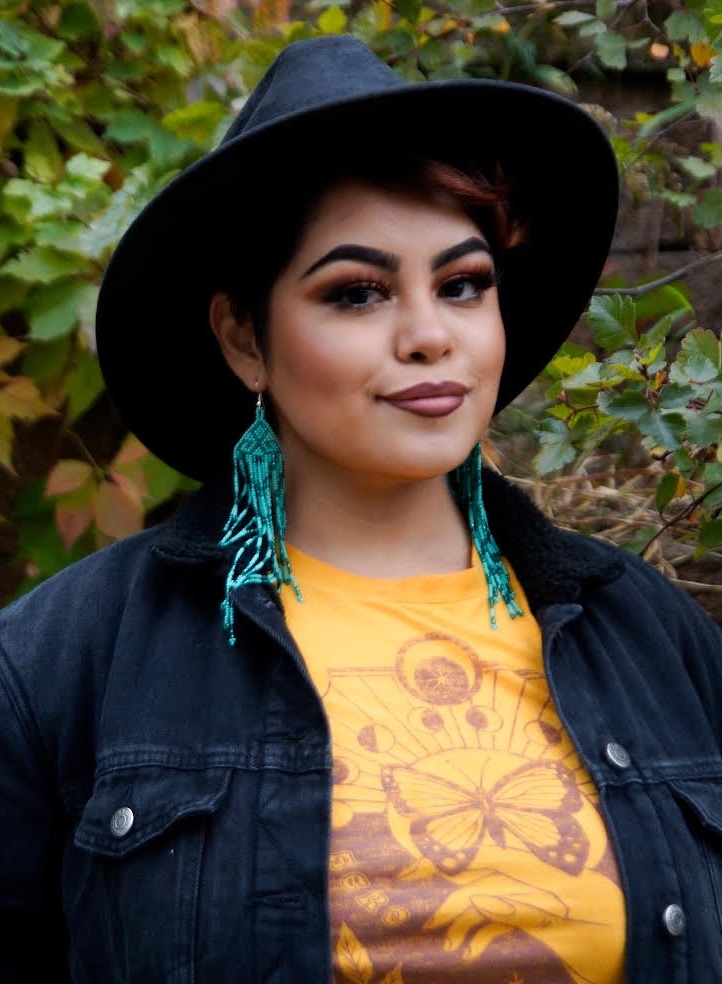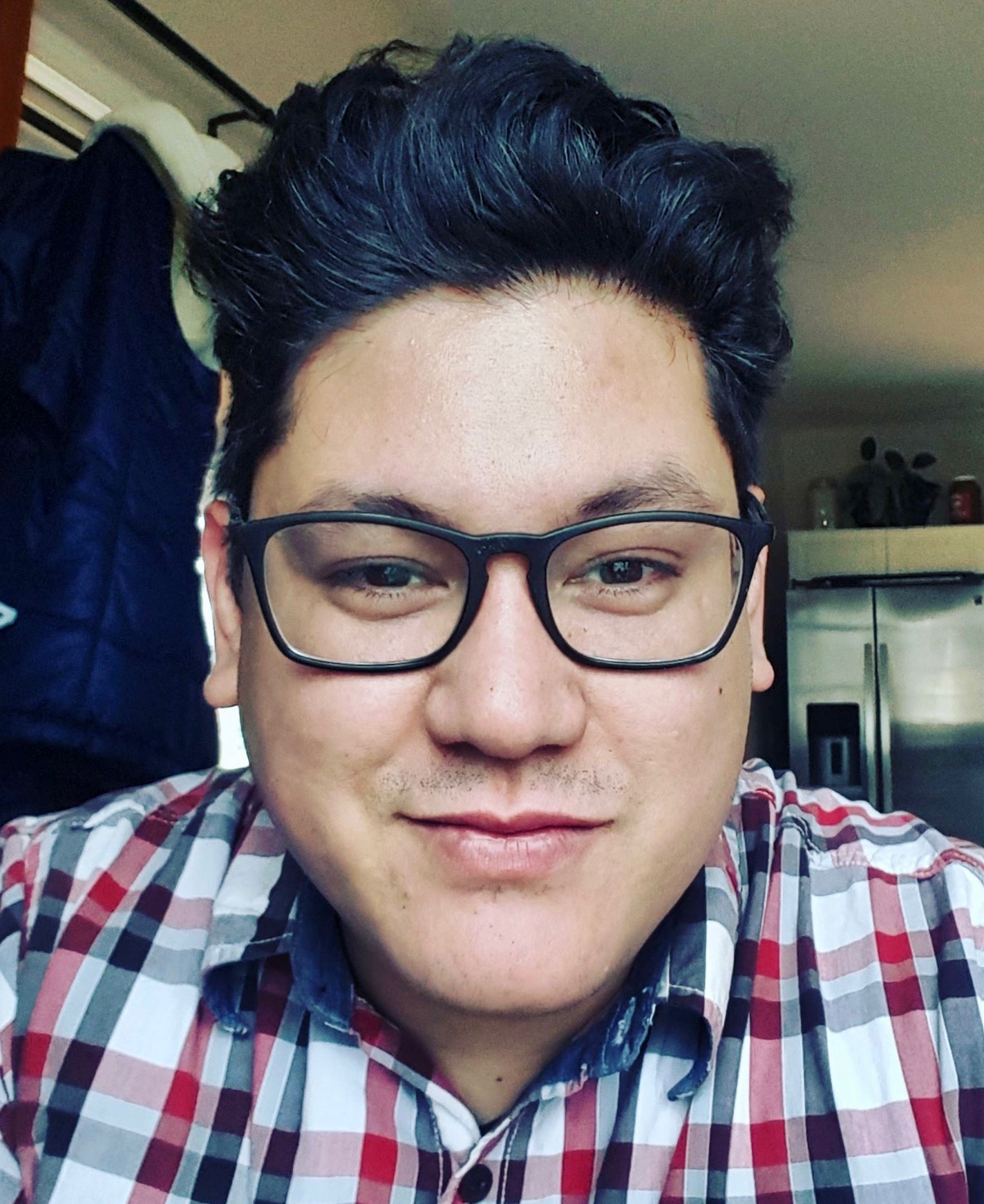Real talk: What I’d like to say to the next mayor

[ad_1]

It’s almost Election Day.
The mayoral primary is fast approaching on Tuesday, Feb. 15. From there, the top two vote-getters will advance to the spring election on April 5, and Milwaukee will have a new mayor for the first time since 2004.
So we asked 10 residents: “If you had two minutes with the next mayor of Milwaukee, regardless of outcome, what would you say?”
‘We need to stay on topic when it comes to discussing reform and creating more opportunities’

(Photo provided by Alexandria Harper-King)
Name: Alexandria Harper-King
Age: 26
Neighborhood: Avenue West
I would repeat what I said when I sat in a meeting with Mayor Barrett. We need to defund the police and put money into programs that are helping BIPOC in this city.
We need to stay on topic when it comes to discussing reform and creating more opportunities for people. We need more money for education, child care and jobs. We need better transportation, which includes extending bus lines into areas where people are getting paid higher wages.
Many of our communities are still scarce on food.
Residents need public servants to be actively helping when they are called upon and not create more disturbance in communities.
I would say invest into the youth. As a community, we continuously take resources and programming away from them and then complain about how they spend their time.
Lastly, I would say take some pride in Milwaukee. The streets are a mess, and the city is dirty. As residents, we should care for the city, but as mayor, you get paid to do it.
‘You should be using diplomacy, especially with our residents’

(Photo provided by Drea Rodriguez)
Name: Drea Rodriguez
Age: 43
Neighborhood: Polonia
I would remind the mayor that we, as a city, are still healing from a pandemic. So, you should be using diplomacy, especially with our residents, some of whom have suffered great loss these last two years.
There are some big decisions to make because there are so many issues that need to be addressed. But as you work to keep the peace, it’s important to remember that we need to get people to invest in this city. We need to make sure we are making people comfortable. This is not always the most welcoming city.
Many neighborhoods are still vulnerable to lead pipes and reckless driving, the same things they’ve been struggling with for the last 20 years. If we are going to invest in our residents, we need to be fairer about how we’re revitalizing neighborhoods, especially affordable ones. Lots of Menomonee Valley and downtown has been revitalized, but that has not been translated into the city.
If we keep a resident’s perspective and keep building on the positives happening in Milwaukee, we can build something that can be powerful for all of Milwaukee and not just downtown. If we want Milwaukee to be a strong city, it needs to be a livable city.
–Compiled by PrincessSafiya Byers
Don’t forget those ‘who are struggling financially’

(Photo provided by Mayhoua Moua)
Name: Mayhoua Moua
Neighborhood: Park View
Age: 53
I’m looking forward to learning more about what you as the next mayor of Milwaukee will be doing for your constituents, especially people who live in poverty. That includes inner-city residents, immigrants and refugees who are struggling financially, trying to make a life in the neighborhoods where they live.
How can you make it a safer neighborhood for them, so they feel safe to let their children play outside? Where they feel safe from reckless drivers? What I have learned over the years is that often these neighborhoods are neglected.
Safety is just not there for residents. Especially when you have language barriers, such as the immigrants and refugee populations. You don’t have any choice of where to go because you cannot afford to move outside the neighborhood that you were put in. At the same time, you don’t have any ways of improving a neighborhood because you don’t know how to voice your concerns.
As mayor, what would you do for these residents? Not only for Southeast Asians, but our neighbors? For African Americans and other minority groups?
How can we make the city a friendlier place for our own children who live in poverty and don’t have the opportunity to work or pursue education? How can we make sure that they can strive further and come out of this cycle of poverty that their families have experienced generation after generation?
If we don’t, we will continue to see a cycle of poverty among minorities and unsafe neighborhoods. What will you do about the system and cycle of poverty in Milwaukee, especially inner-city communities?
‘We need to focus on health care and education’

(Photo provided by Anne Egan-Waukau)
Name: Anne Egan-Waukau
Age: 61
Neighborhood: Glendale
We have a large Native American population in Milwaukee. It started back in the 1940s and 1950s when they recruited Natives to work here. Many stayed, some went back to the reservation. But we do have some issues.
We need to focus on health care and education for our young people. We need to focus on health care for our elders. I don’t feel like there’s enough focus on this – with organizations like the Gerald L. Ignace Indian Health Center, we’re working on behalf of our Native people, but we need more groups to help with health care, with jobs, with education.
We want our people to realize that our votes matter and that we matter. I think this is a great opportunity for the mayor to come in and sit with us and talk with us and listen to what our issues are. I think those would be the main things: education, health, mental health and safety, especially safety for our elders.
–Compiled by Matt Martinez
‘I encourage the next mayor to not reach for knee-jerk reactions and see Milwaukeeans as full people’

(Photo provided by Angela Lang)
Name: Angela Lang
Age: 32
Neighborhood: Lives on East Side, works in 53206 ZIP code
I would start with asking the new mayor to explain their connection and love toward Milwaukee.
I also think about reckless driving, specifically, and am disappointed with the narrative that the problem is just young Black kids stealing cars. Immediately, the knee-jerk reaction is to add more police versus seeing the humanity in people.
Also, reckless driving in our city includes the white man on his fourth DUI, or when police are doing high-speed chases and our own team at Black Leaders Organizing for Community has to run off the sidewalk to avoid being hit by a police car. But these examples are often left out of the narrative.
Our city deserves so much, and I encourage the next mayor to not reach for knee-jerk reactions and see Milwaukeeans as full people.
What does a short-term future look like if the mayor does not approach issues like reckless driving from a place of loving Milwaukee and the people in it?
I think Milwaukee is hurting right now. There’s a lot of anger and frustration, and if we’re not approaching it from seeing people’s humanity, I think the divide will continue. We’re an incredibly segregated city and I think those divides will continue if there is not an effort to listen and understand each other.
‘Mental health in our communities should be among our pillars of public safety’

(Photo provided by Iuscely Flores)
Name: Iuscely Flores
Age: 25
Neighborhood: Clarke Square
I would ask if the new mayor knew what a sanctuary city is. I’d hope they know what it means and that they can look to cities like San Francisco as an example.
I also would ask if they have considered funding for mental and physical health services, and what their plan would be to bring that to action. Milwaukee recently received funds for the police department through a federal grant, and I would ask them if, or how, they see that as benefiting our communities more than mental or physical health services.
Communities of color are already the most underfunded when it comes to mental and physical health issues. We can see the effect of that this time of year when folks of color get seasonal depression and have trouble explaining what is happening to their employer or families or maybe even themselves.
So, I really believe mental health in our communities should be among our pillars of public safety. If we can start supporting mental health, we can start to heal as a community, and I hope the next mayor considers starting there as a point of growth for Milwaukee.
–Compiled by Sam Woods
‘You can’t just ignore the South Side’

(Photo provided by Jesus Nañez)
Name: Jesus Nañez
Age: 39
Neighborhood: Town of Lake
Thank you for taking the time to listen.
First, there always seems to be a rivalry between resources on the North and South Side.
I don’t have raw data to say the South Side is struggling more than the North Side or vice versa. I’ve lived and worked in both areas, and I know the North Side has more challenges. But you can’t just ignore the South Side.
How do we balance that scale? Is there a person on your team that has their finger on their pulse of the South Side?
Second, from my perspective as a business owner, community development is economic development. The focus of building community should include a large component of building small businesses and empowering entrepreneurs to open up their shops.
City government has a bunch of great programs and grants already. But what I see lacking is the staff. How do we get more people answering phones and returning e-mails on time? It seems like the city has not yet recovered from the staffing pandemic, which is a whole different beast. I feel like the city is still at 50%.
I know how to get things done through the system because I’ve been doing this for a long time. But it’s so much harder for the average first-time business owner, going through the maze of phone calls and different departments.
What is the plan to ramp up the staff and pace at which city departments execute their work? I know it’s not easy, but there has to be a way.
‘I need the mayor to heal Milwaukee’

(Photo provided by Esperanza Gutierrez)
Name: Esperanza Gutierrez
Age: 69
Neighborhood: Pulaski Park
During the pandemic, I’ve been mainly in lockdown. The only contact I have is with my family. It’s been rough being isolated.
I need the mayor to heal Milwaukee.
If I’m suffering like this, I’m pretty sure people are suffering all around me. I can see it in my kids, my grandchildren. I can see it when I go grocery shopping. Some people stop and smile. Others push themselves on everybody because they are tired of sitting at home and waiting.
I think we need a young mayor to imagine a future for Milwaukee and not just try to bring back the past.
We need healing.
We need to have a discourse. To be able to sit down, no matter what your views are, and talk and listen to each other. In Milwaukee, we need to listen to each other.
The mayor should be able to unite the Common Council and not divide it.
I see gentrification happening on the near South Side. I see condos popping up everywhere, but I don’t see working people being able to get in them. We need to be careful of outside investors.
We need to get back to civility, tapping into being courteous and respectful with each other. The more you use hateful words, the more you have the hate. And the more you use the hate, the more you spread it.
We need to invest in ourselves, so we can heal.
–Compiled by Adam Carr
‘What kind of resources does the new mayor plan to pull in toward Milwaukee Public Schools?’

(Photo by Joe Brusky/MTEA)
Name: Alondra Garcia
Age: 24
Neighborhood: Walker’s Point
I’d like to speak to the new mayor about education. As a teacher myself, what kind of resources does the new mayor plan to pull in toward Milwaukee Public Schools specifically? And what’s the position on trying to overtake the MPS district?
There are talks and conversations going on about trying to dismantle the MPS district because it’s too big and giving power to people that would seek to expand the charter sector. So, what’s their take on that, where do they stand?
I would like them to know that, as an MPS graduate and now MPS teacher, I am against any takeover. I saw with my own eyes the benefit of being an MPS student, the opportunity to be exposed to diversity, different opportunities and being able to be with my people in my community. If I was to be in a charter school or any other kind of school, I wouldn’t get that exposure.
There’s so many resources that could be utilized in a different way, yes, MPS included, and there’s a lot that needs to be fixed within the district. But overall, the teachers and students are what makes it worth it. You cannot just dismantle all of it like that, all at once, because many families depend on public education.
‘How will you hold yourself accountable to ensuring that women, girls, queer and trans people are safe and that they’re thriving?’

(Photo provided by Tammie Xiong)
Name: Tammie Xiong
Age: 36
Neighborhood: 53208 ZIP code
I’m a huge believer that women, girls, queer and trans people are the backbone of community and making sure that community is safe and thriving. The question I would ask is, “How will you hold yourself accountable to ensuring that women, girls, queer and trans people are safe and that they’re thriving?”
I think one of the most important things is that Milwaukee is home to huge immigrant and refugee communities. When you’re escaping war and trying to survive and you come to this country and settle in Milwaukee, I think it’s the mayor’s responsibility to make sure that Milwaukee can become a place where immigrants and refugees really feel safe and call home.
I think there’s a lot of responsibilities to ensuring that families coming from all over the world feel like that they can really call Milwaukee home. I think that’s important to us and the work we do at the Hmong American Women’s Association and coming from someone who had Hmong refugee parents.
–Compiled by Ana Martinez-Ortiz
More election news
The spring primary election is Feb. 15: Here’s what you need to cast your vote.
Milwaukee has an election coming up. Meet the people tasked with ensuring things go
[ad_2]
Source link
